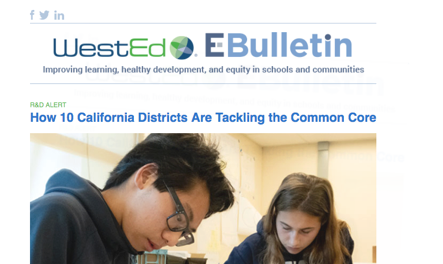
and audio recordings below.
Join WestEd Senior Research Scientist Aída Walqui for an engaging online series that highlights scholarly perspectives on the education of English Learners across a wide variety of settings.
Aída Walqui will lead 12 conversations with renowned linguists and educators from around the world who have made significant contributions to the study of multilingualism. Representing a wide variety of interests in the field, guest speakers will share their perspectives from American universities as well as research and development institutions from four different countries.
All sessions will have a different, but complementary focus on research advances in the education of English Learners. The sessions are organized thematically (see more information below) and are free to attend.
All registered participants will receive a list of readings and biographies of the guests. Registered participants will also have an opportunity to submit questions for the interviewee up to one week prior to the day of the session.
Who Should Attend?
- Teachers
- Education leaders
- Teacher educators
- Teacher professional developers
- Researchers in the United States and abroad
Dates & Times
Sessions will take place on Tuesdays and Thursdays at 9 am PT / 12 pm ET (interviews with Australian scholars will be at 3 pm PT / 8 am AU). Each session will run for 60 minutes.
Registration Information
Registration for all sessions is free.
To register, click the unique registration link for each session below. Register for as many sessions as you wish. You will receive an email confirmation, readings, and reminders to attend. We look forward to your participation!
Please contact Danny Torres at [email protected] if you have questions about the series or if you would like more information about registration.
Theme: Theories and Labels in the Education of English Learners
What’s in a Name? The Terms We Use to Talk About English Learners, the Theories They Reflect, and Why Labels Matter
Date: Tues., July 14, 2020
Time: 9:00 am PT / 12:00 pm ET
Featured Speaker: Guadalupe Valdés, Stanford University
 Guadalupe Valdés is Bonnie Katz Tenenbaum Professor of Education at Stanford University. A thoughtful and prolific intellectual, Dr. Valdés has led the field of educational linguistics with her research and insights on a diversity of topics including sociocultural diversity and identity, theories and methods of instruction for English Learners, measurement of progress, and the role of educational policies on the attainment of minoritized youth and their communities. Among her numerous publications, Con Respeto: Bridging the Distances between Culturally Diverse Families and School, An Ethnographic Portrait and Learning and Not Learning English: Latino Students in American Schools are classics in the field.
Guadalupe Valdés is Bonnie Katz Tenenbaum Professor of Education at Stanford University. A thoughtful and prolific intellectual, Dr. Valdés has led the field of educational linguistics with her research and insights on a diversity of topics including sociocultural diversity and identity, theories and methods of instruction for English Learners, measurement of progress, and the role of educational policies on the attainment of minoritized youth and their communities. Among her numerous publications, Con Respeto: Bridging the Distances between Culturally Diverse Families and School, An Ethnographic Portrait and Learning and Not Learning English: Latino Students in American Schools are classics in the field.
Discussion Topics:
- The role of theory in the formulation of policies and practices suggested for English Learners and their teachers
- The role language – both family languages and English – play in the academic and civic development of English Learners
- How language is conceptualized, talked about, and curricularized in education; as well as recent developments in parental engagement
Multilingualism in the United States and Around the World: Current Issues and Tensions
Date: Thurs., July 16, 2020
Time: 9:00 am PT / 12:00 pm ET
Featured Speaker: Ofelia García, CUNY

Ofelia García is Emeritus Professor in the Urban Education and of Hispanic and Luso-Brazilian Literatures and Languages at the Graduate Center of the City University of New York. She has published extensively on multilingualism, the sociology of language, and the education of minoritized students and their teachers. García has also been working with teachers and conducting research at a New York City school for many years. Her most recent work studies translanguaging in society and classrooms.
Discussion Topics:
- The evolution of multilingualism and the role it plays in everyday life, schooling, and society
- Proposals for English Learner and teacher education
- Perspective and projections on the future of multilingualism in America
- The work of education linguists in classrooms
Theme: English Learners in the United States: History and Civic Participation
English Learners in the United States: A Historical, Policy, and Educational Trajectory
Date: Tues., July 21, 2020
Time: 9:00 am PT / 12:00 pm ET
Featured Speaker: Kenji Hakuta, Stanford University
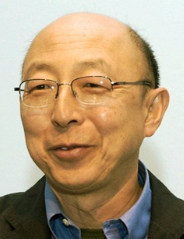
Kenji Hakuta is the Lee Jacks Professor of Education, Emeritus at Stanford University. An experimental psycholinguist by training, he is best known for his work in the areas of bilingualism and policies for the development of English by immigrant students. Dr. Hakuta is the author of numerous research papers and books, including his landmark Mirror of Language. He chaired a National Academy of Sciences report Improving Schooling for Language Minority Children, and co-edited a book on affirmative action in higher education, Compelling Interest: Examining the Evidence on Racial Dynamics in Higher Education.
Discussion Topics:
- An exploration of historical and current debates on educational access for English Learners
- Perceptions of multilingualism
- Policies affecting the education of immigrant students and children of immigrants in the United States
- The role of standards and assessment
- The need for theoretical understandings to evaluate the effectiveness of programs
English Learners and Civic Life: The Imperative, the Reality, and the Potential
Date: Thurs., July 23, 2020
Time: 9:00 am PT / 12:00 pm ET
Featured Speaker: Joel Westheimer, University of Ottawa
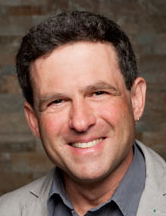
Joel Westheimer is University Research Chair in Democracy and Education at the University of Ottawa and education columnist for CBC Radio’s Ottawa Morning show. He is co-founder and executive director of Democratic Dialogue, a research collaborative dedicated to the critical exploration of democratic ideals in education and society. Among his many publications, Westheimer is author of the critically acclaimed Among Schoolteachers: Community, Autonomy and Ideology in Teachers’ Work and What Kind of Citizen? Educating Our Children for the Common Good.
Discussion Topics:
- Citizenship education — what it should entail, and how it is misconstrued in educational reform movements
- The role of civic education in the development of English Learners
- The connections across levels of schooling
- The Inequality Project and its potential for classes characterized by socioeconomic, social, and linguistic diversity
Theme: The Education English Learners Need and Deserve
Robust Learning Opportunities for English Learners: Even MORE Important Now
Date: Tues., July 28, 2020
Time: 9:00 am PT / 12:00 pm ET
Featured Speaker: George Bunch, University of California, Santa Cruz
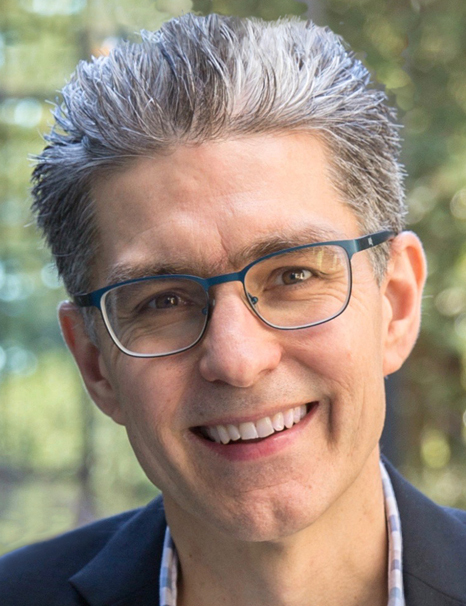 George Bunch is Professor of Education at the University of California, Santa Cruz. His research focuses on language and literacy challenges and opportunities for students learning English as an additional language in US K–12 schools and higher education, and on policies and practices designed to serve such students. Dr. Bunch received a Midcareer Award from AERA and a Spencer Midcareer Grant for 2017–2018. His most recent book is Amplifying the Curriculum: Designing Quality Learning Opportunities for English Learners, co-edited with Aída Walqui.
George Bunch is Professor of Education at the University of California, Santa Cruz. His research focuses on language and literacy challenges and opportunities for students learning English as an additional language in US K–12 schools and higher education, and on policies and practices designed to serve such students. Dr. Bunch received a Midcareer Award from AERA and a Spencer Midcareer Grant for 2017–2018. His most recent book is Amplifying the Curriculum: Designing Quality Learning Opportunities for English Learners, co-edited with Aída Walqui.
Discussion Topics:
- The educational challenges and opportunities for students learning English as an additional language
- Features of quality education for English Learners
- How to prepare and continue the education of teachers who work in classes where English Learners interact with students whose family language is English
Theme: The Education of English Learners in Other Countries
Oracy in the UK for All Students: Current Research
Date: Thurs., July 30, 2020
Time: 9:00 am PT / 12:00 pm ET
Featured Speaker: Alice Stott, Voice 21, London

Alice Stott is Director of Learning and Development at Voice 21, a UK-based charity dedicated to raising the status of speaking in schools. She previously taught at School 21 and is coauthor of Transform Teaching and Learning Through Talk, published in January 2019 by Rowman & Littlefield. The work of Stott and her colleagues on oracy has been studied and evaluated by a team of researchers at the University of Cambridge led by Neal Mercer.
Discussion Topics:
- Reasons that the UK has found it imperative to develop oracy as an integral part of the curriculum in multilingual, multiethnic schools
- The importance of cultivating the joint work of educators, professional developers, and university researchers to focus on the development of oracy
- What Voice 21 has been able to accomplish in British schools
- Learnings from the British experience and suggestions for the United States
The Role of Talk in Learning: Implications for Recently Arrived EAL and Refugee Background Students in Mainstream Classes
Date: Tues., August 4, 2020
Time: 3:00 pm PT / 8:00 am AU
Featured Speakers: Jenny Hammond, University of Technology, Sydney

Jennifer Hammond is an Honorary Associate Professor in the School of Education, University of Technology, Sydney. She has taught for many years in the fields of language and literacy education, English as an Additional Language (EAL) education and research design. Her research interests are in literacy development, classroom interaction, and the implications of socio-cultural and systemic theories of language and learning in EAL education. With colleagues, she has completed research into the nature of high challenge, high support pedagogies designed to meet the needs of EAL students, including students of refugee background, in mainstream classes. She has published widely in these areas.
Discussion Topics:
- The sustained educational work on language carried out in Australia under the initial leadership of Michael Halliday
- The development, implementation, and research around the importance of talk in learning
- Advantages for the education of newly arrived English Learners offered by teachers who have expertise in planning and enacting substantive conversations about key curriculum concepts
- Australian work on the development of teacher expertise to engage students in “high challenge/high support” pedagogies
A Meaning-Oriented Model of Language for the Classroom
Date: Thurs., August 6, 2020
Time: 3:00 pm PT / 8:00 am AU
Featured Speakers: Beverly Derewianka, University of Wollongong, Australia
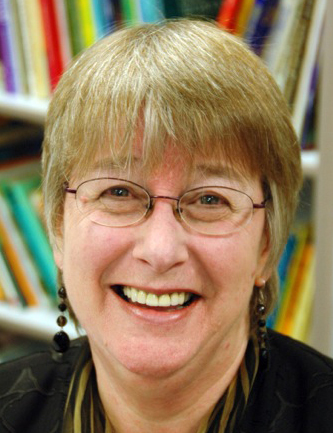
Beverly Derewianka is an Emeritus Professor at the University of Wollongong, Australia. She has worked in the field of Language Education at the primary, secondary, and tertiary levels and has spent over thirty years as a literacy/EAL teacher educator at the undergraduate, masters, and doctoral levels.
Dr. Derewianka has acted as consultant to various curriculum bodies nationally and internationally, contributing to policy design and assessment procedures. She has written a number of books for teachers based on her research into students’ literacy development. Her publications include Exploring How Texts Work, A Grammar Companion, School Discourse: Learning to Write Across the Years of Schooling (with Frances Christie) and Teaching Language in Context (with Pauline Jones).
Although officially retired, she currently works with schools in all states of Australia and overseas supporting teachers in raising students’ literacy outcomes.
Discussion Topics:
- The sustained educational work on language carried out in Australia under the initial leadership of Michael Halliday
- The development, implementation, and research around a meaning-oriented approach to language
- The knowledge of language teachers should have, the knowledge of language their English Learners should develop
- Australian work on the development of teacher expertise to engage students in “high challenge/high support” pedagogies
Theme: Rethinking and Strengthening the Work on English Learners
Policy and Equity in the Education of English Learners: The Struggle Continues
Date: Tues., August 11, 2020
Time: 9:00 am PT / 12:00 pm ET
Featured Speaker: Magaly Lavadenz, Loyola Marymount University, Los Angeles

Magaly Lavadenz is a professor in the Department of Educational Leadership at Loyola Marymount University. She is also the founding director of LMU’s Center for Equity for English Learners (CEEL). Dr. Lavadenz is a former bilingual and ESL classroom teacher. Her research interests include the education of Latino and bilingual teachers, the experiences of the Central American immigrant community, public policy affecting language use and education, educational equity, and biliteracy development. She holds a Ph.D. in Education, Language, Literacy and Learning from the University of Southern California.
Discussion Topics:
- The impact of educational policies and practices for culturally and linguistically diverse students
- Work promoted as founder of the Center for Equity for English Learners at Loyola Marymount University
- Reflections on teacher education and professional development
- The role of teacher associations in the education of English Learners
Reconceptualizing the Role of Critical Dialogue in the Education of English Learners
Date: Thurs., August 13, 2020
Time: 9:00 am PT / 12:00 pm ET
Featured Speaker: Amanda Kibler, Oregon State University
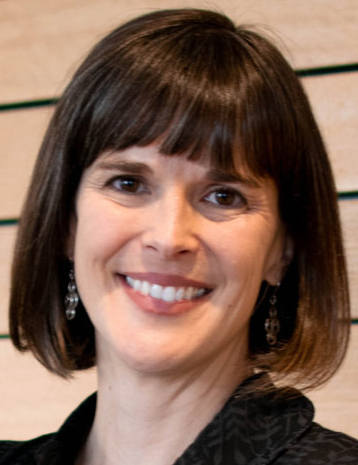
Amanda Kibler is Associate Professor and Teaching Program Chair at Oregon State University. Her research focuses on the language and literacy development of multilingual children and adolescents from immigrant backgrounds. Recent and current research projects include an eight-year longitudinal study of bilingual writers across adolescence and early adulthood, an ethnographic exploration of the home language and literacy practices of Spanish-speaking preschoolers from immigrant families, and a mixed-methods study of teacher and peer interaction and social networks in middle school classrooms.
Discussion Topics:
- Longitudinal research on the development of English Learners’ writing skills and the implications of that work for educators’ practices
- The creation and use of categories for English Learners and the consequences that follow
- Home language and literacy practices of Spanish-speaking preschoolers from immigrant families
- The role of critical dialogic interaction in education.
Teaching Disciplinary Literacies in Hard Times that Just Got Harder
Date: Tues., August 18, 2020
Time: 9:00 am PT / 12:00 pm ET
Featured Speaker: Meg Gebhard, University of Massachusetts, Amherst
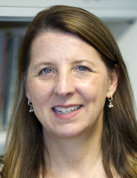
Meg Gebhard is a Professor of Teacher Education and School Improvement at the University of Massachusetts, Amherst. Her research centers on understanding second language literacy development, teachers’ professional development, and the discourses of educational reform in the United States. Using an institutional perspective of second language learning she analyzes how classroom practices shape and are shaped by the contexts of public schooling. Her most recent book is Teaching and Researching ELLs’ Disciplinary Literacies. Systemic Functional Linguistics in Action in the Context of US School Reform.
Discussion Topics:
- The development of multiliteracies with English Learners
- How to prepare teachers to work equitably with linguistically diverse students
- Research on how classroom practices shape and are shaped by the context of public schooling in the United States
- Adaptations and research on Hallydayan perspectives on language and learning to classrooms in the United States
From Acquisition to Development: Reconceptualizing Educators’ Work with English Learners
Date: Thurs., August 20, 2020
Time: 9:00 am PT / 12:00 pm ET
Featured Speaker: Diane Larsen-Freeman, University of Michigan, Ann Arbor
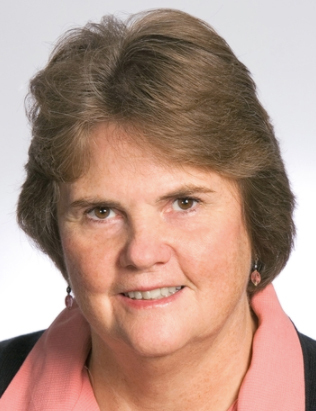
Diane Larsen-Freeman, Professor Emerita from the University of Michigan, Ann Arbor, has taught generations of second language specialists, conducted research in second language development, and reviewed and synthesized research literature, activities that have led to the publication of leading articles and books in the field.
Dr. Larsen-Freeman has also written books on English grammar from a discourse perspective and has directed the popular grammar series, Grammar Dimensions: Form, Meaning, and Use. Among her many contributions to the field, she developed an ecological theory of second language development.
Discussion Topics:
- Second language acquisition and why we should now refer to it by different terms
- The role of agency in language learning
- Ecological theories of language development
- The process and method of teaching additional languages
anchor
WestEd is pleased to announce Aída Walqui will lead a new National Research and Development Center to Improve Education for Secondary English Learners at WestEd, which is one of two new IES-funded R&D centers that will focus on innovative solutions to improving opportunities and achievement for English Learners in secondary settings.
